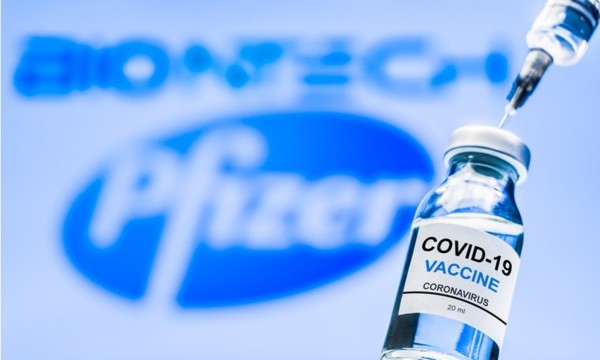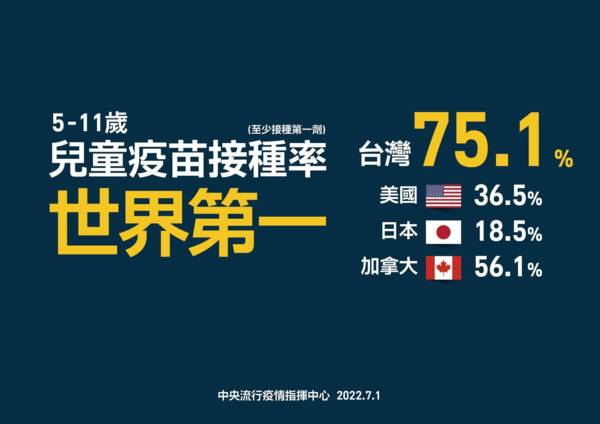

 字體:小 中 大
字體:小 中 大 |
|
|
|
| 2022/08/29 04:44:07瀏覽384|回應0|推薦6 | |
新冠疫苗採購合約保密30年? 笨蛋重點不在疫苗採購價格 華盛頓郵報的報導,多國合約流出窺見不平等條款 新冠疫苗的合約早該攤在陽光下,沒有任何合約需要保密30年的。前總統陳水扁更說陳時中選舉是「#踩著近一萬具屍體拾級而上」。#非常直接_一箭中的;但隨即道歉改口陳時中會是繼他之後民進黨第二位台北市市長。
合約要保密30年,代表有不好說的黑幕,各國政府需要保持沉默,等風頭過,確定安全再開封的意思。風頭過,要30年。 擺明有霸王條款,簽了不平等條約。政府買了疫苗,裡面有什麼不能讓百姓知道,跟著藥廠聯手隱瞞,#是一種背信。 不可否認,疫情爆發以來,因為指揮中心的坐鎮,讓社會在疫情過渡期間能穩定有秩序照常過日,指揮中心所有成員功不可沒。 不過.... 🚧指揮中心的十字架 不管指揮中心的動心起念是善是惡,都有揮之不去的十字架,要背。 畢竟造成染疫近10000人死亡,疫苗死亡近1600人(雖然矢口否認有因果關係)。人數超過二戰時的台灣轟炸、228事件、921大地震,寫下傷亡新紀錄。 這些尚且是官方數字,很多因故沒有通報,傾向低估。真實數字很可能在(超過)20000人。 🚧偽造文書?散播不實的訊息 事實是因疫苗而死的人數超過染疫,與每日官方發表比例相反。中重症至少一半打過疫苗,照常染疫,這些數字官方無論如何不肯歸回疫苗死亡,致使大眾誤以為是染疫現象嚴重。 這樣算不算操作文件與數字? 偽造文書? 散播不實訊息? 官員似乎低估某些狀況,以為「不可控的天災,第五類流行病」可以超越所有法理的約束,不會有事後的追究。 以為國際間都這樣(處理),所以我們也可以。(因為大家都說謊,所以我也可以說謊嗎?)
甚至不排除有拿百姓健康生命的成績單到國際間討拍討讚的意圖,刻意爭取台灣在國際「被肯定」的機會。比方疫苗接種覆蓋率強調第一。 豈止疫苗合約需要放大檢視, 🚧染疫投藥的治療流程也應該攤開檢視。 一萬人染疫死亡是用(A)的治療過程;如果用(B)呢?可能低於一萬人。用C?搞不好9成能出院。死一萬人是必然的嗎? 🚧🚧🚧回到新冠疫苗合約🚧🚧🚧 價格不是重點,了不起買低卻買高被當盤子,#指揮中心以為公開疫苗採購價就可以塘塞疑慮,說平均是$765/劑就可以交代。 一般商場的保密協定,了不起1~5年,疫苗採購需保密30年? 重點在這是史上第一個緊急授權的疫苗,臨床實驗沒有完成,沒有經過正式核准,存在很多萬一。藥廠在全力保護自己全身而退。 透過媒體,群眾的恐懼被攪亂,對疫苗燃起十萬火急的需求,幾個疫苗藥廠儼然形成賣方市場。 政府與藥廠簽約,政府的背後是人民,政府拿人民納稅錢去買人民的救命藥, 這個救命藥有怎樣的但書? 事關人民生命健康的利益,人民不知道, 但政府基於合約保密30年不能講, 對百姓是一種背信。 華盛頓郵報有一篇報導,就在講輝瑞仗著市場第一賣家的身分,在賣方市場的情勢,與各國簽下的不平等條約, (✓) 價格分不同區段,有錢國家報高 (✓) 要求有些國家買疫苗要抵押國家資產,有學者比喻,這就像美國拿大峽谷當抵押品買疫苗一樣。 (✓) 一旦發生糾紛,私下仲裁。 (✓) 始終將輝瑞利益置於公衛要求之前 (✓) 採購國不得接受疫苗捐贈,買來的疫苗也不得捐贈給他人(既是救命藥,廣泛給予尚且來不及,輝瑞還設煞車機制,不讓疫苗即時給出?) (✓) 如果遇到數量短缺,輝瑞可以片面更改交貨日期。 但凡人間有保密,就有人洩密;所以輝瑞與多國政府的合約走漏出來,雖然不是最後確認版本,但可一窺究竟。 世人以為是救命藥,沒想到很多人體質不適,打了變成針到命除,花很多人民納稅錢買的救命藥,最後變成納命藥。百姓也是有趣,即便如此,對於員外/宗教大師仍然不斷感恩稱謝。無視於台灣人口近三年的人口消長。 很多爭議性的處理,會隨著這個疫情的原始點到底是人為操作、還是天然不可抗力,還要再嚴加看待,如果反對黨有心要追的話。 註:強調事後檢討,不在指責逞罰,但如果懲罰必須,那就做。但重點不在這裡,而在公開揭示一個接近真相的真相,讓世人明瞭,付出了怎樣的代價,日後不再重蹈覆轍。 以下是華盛頓郵報的原始報導,華盛頓郵報,再說一次,不是什麼陰謀論。 這份簡體中譯版很多內容來自華盛頓郵報,請互相參照 https://www.zhihu.com/question/498246657?utm_id=0 自由時報相關報導 ===== 華盛頓郵報原文 By Adam Taylor October 19, 2021 at 12:08 p.m. EDT The coronavirus vaccine developed by Pfizer and BioNTech has proved a success. First to receive emergency use authorization in the United States, the Pfizer shot has become the world’s most popular, with 3.5 billion doses purchased. Sales could double in 2022, according to projections. But the rapid proliferation of the vaccine, under contracts negotiated between the company and governments, has unfolded behind a veil of strict secrecy, allowing for little public scrutiny of Pfizer’s burgeoning power, even as demand surges amid new negotiations for one of the world’s most sought-after products. A report released Tuesday by Public Citizen, a consumer rights advocacy group that gained access to a number of leaked, unredacted Pfizer contracts, sheds light on how the company uses that power to “shift risk and maximize profits,” the organization argues. The Manhattan-based pharmaceutical giant has maintained tight levels of secrecy about negotiations with governments over contracts that can determine the fate of populations. The “contracts consistently place Pfizer’s interests before public health imperatives,” said Zain Rizvi, the researcher who wrote the report. Public Citizen found common themes across contracts, including not only secrecy but also language to block donations of Pfizer doses. Disputes are settled in secret arbitration courts, with Pfizer able to change the terms of key decisions, including delivery dates, and demand public assets as collateral. Sharon Castillo, a spokeswoman for Pfizer, said that confidentiality clauses were “standard in commercial contracts” and “intended to help build trust between the parties, as well as protect the confidential commercial information exchanged during negotiations and included in final contracts.” Both Pfizer and Moderna, another U.S. company that developed a vaccine using breakthrough mRNA technology, are facing pressure from critics who accuse them of building a “duopoly.” Although Pfizer did not accept government funding through the vaccine development program called Operation Warp Speed, it received huge advance orders from the United States. It opposed an intellectual property waiver that could have meant the sharing of its technology. Experts who reviewed the terms of contracts with foreign governments suggested that some demands were extreme. In contracts reached with Brazil, Chile, Colombia and the Dominican Republic, those states forfeited “immunity against precautionary seizure of any of [their] assets.” “It’s almost as if the company would ask the United States to put the Grand Canyon as collateral,” said Lawrence Gostin, a professor of public health law at Georgetown University. The company rejected that logic. “Pfizer has not interfered and has absolutely no intention of interfering with any country’s diplomatic, military, or culturally significant assets,” Castillo said. “To suggest anything to the contrary is irresponsible and misleading.” Some contract demands appear to have slowed vaccine rollouts in countries. At least two countries walked away from negotiations and publicly criticized the company’s demands. However, both later reached agreements with Pfizer. Aspects of the contracts are not uncommon, including the reliance on arbitration courts and clauses designed to give companies legal protections. Pfizer’s price for its vaccine, as low as $10 per dose in Brazil, appeared to be lower than some competitors’ prices. “Pharma companies have concerns,” said Julia Barnes-Weise, director of the Global Healthcare Innovation Alliance Accelerator. “One of them is, especially for a not-yet-approved vaccine, that they could be held liable for any injury that that vaccine seems to have caused.” Secret contracts Pfizer has formalized 73 deals for its coronavirus vaccine. According to Transparency International, a London-based advocacy group, only five contracts have been formally published by governments, and these with “significant redactions.” “Hiding contracts from public view or publishing documents filled with redacted text means we don’t know how or when vaccines will arrive, what happens if things go wrong and the level of financial risk buyers are absorbing,” said Tom Wright, research manager at the Transparency International Health Program. Much of what is known about Pfizer’s contracts has come out in leaks, often through journalism from local outlets or international ones, including the Bureau of Investigative Journalism. “Hiding contracts from public view or publishing documents filled with redacted text means we don’t know how or when vaccines will arrive, what happens if things go wrong and the level of financial risk buyers are absorbing,” said Tom Wright, research manager at the Transparency International Health Program. Much of what is known about Pfizer’s contracts has come out in leaks, often through journalism from local outlets or international ones, including the Bureau of Investigative Journalism. Public Citizen analyzed an unredacted draft agreement between the company and Albania, as well as unredacted final documents from Brazil, Colombia, the Dominican Republic, Peru and the European Commission. Redacted documents published by Chile, the United States and Britain provide further context, though they are missing key details. The contract reached with Brazil prohibits the government from making “any public announcement concerning the existence, subject matter or terms of [the] Agreement” or commenting on its relationship with Pfizer without the prior written consent of the company. “This is next-level stuff,” said Tahir Amin, an intellectual property lawyer who co-founded I-Mak, a nonprofit global health organization. Pfizer exerted control over the supply of vaccine doses after contracts were signed. The Brazilian government was restricted from accepting donations of Pfizer doses or making its own donations. Pfizer also included clauses in contracts with Albania, Brazil and Colombia that it could unilaterally change delivery schedules in the case of shortages. In contracts with Brazil, Chile, Colombia, the Dominican Republic and Peru, governments were required to sign a document that says each “expressly and irrevocably waives any right of immunity which either it or its assets may have or acquire in the future.” The first four also were required to waive immunity against “precautionary” seizure of their assets. Public Citizen found contracts that required governments “‘to indemnify, defend and hold harmless Pfizer’ from and against any and all suits, claims, actions, demands, damages, costs and expenses related to vaccine intellectual property.” An opaque giant Pfizer has not experienced the same level of public scrutiny as Moderna, which has been accused of price-gouging and delaying deliveries. Analytics firm Airfinity this week predicted Pfizer will sell $54.5 billion worth of coronavirus vaccine next year, almost twice the value of Moderna’s sales. One official from a country in the midst of negotiations with Pfizer, who was not authorized to speak on the matter, said that the country found Pfizer difficult to negotiate with but reliable in the delivery of vaccine doses. Like Moderna’s, Pfizer’s vaccine has been found to be highly effective against the delta variant of the coronavirus and to provide long-lasting immunity. From the leaked documents, Pfizer appears to have offered lower prices for its vaccine to poorer countries that had less leverage. Castillo said that Pfizer had committed to a tiered pricing approach, with wealthier nations paying about the cost of a takeout meal per dose and lower-middle-income countries offered prices at a not-for-profit price. Some 99 million doses had reached low- and lower-middle-income countries so far, and the company expects “substantial increase in shipments to these countries through the end of the year.” Contract terms related to sovereign immunity may have been an attempt to cover for some risks over which the company has little control, including the use of new, unapproved vaccines in partner countries where the company has little oversight over storage and distribution. Pfizer may have been worried about opportunistic lawsuits, Barnes-Weise said. Some countries, including the United States, have laws that provide indemnification to vaccine manufacturers, but most do not. However, Transparency International argued that at least four contracts or drafts it examined went “much further” than other vaccine developers, with “more of the risk onto national governments, and away from the developer, even if missteps are made by the developer or supply chain partners, and not just if there is a rare adverse effect of the vaccines.” Suerie Moon, co-director of the global health center at the Graduate Institute of International and Development Studies in Geneva, said that restrictions on donations were “appalling” and “counter to the goal of getting vaccines as quickly as possible to those who need them.” Castillo said Pfizer is not currently pursuing legal action against any government related to its coronavirus vaccine. At least two countries that initially backed out of negotiations with Pfizer later returned. In January, Brazil publicly said Pfizer was insisting on “unfair and abusive” contractual terms, pointing to the confidentiality clauses. Just months later, Brazil signed a $1 billion contract with the drug giant for 100 million doses. Public Citizen says that the signed contract, later leaked, contained many of the provisions that Brazil once opposed. Argentina also rejected early negotiations with Pfizer, with the country’s former health minister publicly saying the company “behaved very badly” and was making demands that did not comply with Argentine law. The country later agreed to purchase 20 million doses. The unredacted contract has not been released. Covax, a World Health Organization-backed vaccine-sharing initiative, has purchased only a relatively modest 40 million doses directly from Pfizer, with reports of disputes during subsequent negotiations. Covax later reached an agreement with the United States for Washington to buy and redistribute 500 million Pfizer doses to low-income countries through Covax. In its report, Public Citizen called on the U.S. government to use its leverage to force Pfizer to take a different approach, including requiring the company to share technology and intellectual property so that other manufacturers can produce the vaccine. “The global community cannot allow pharmaceutical corporations to keep calling the shots,” Rizvi said. “The Biden administration can step up and balance the scales.” |
|
| ( 時事評論|公共議題 ) |











